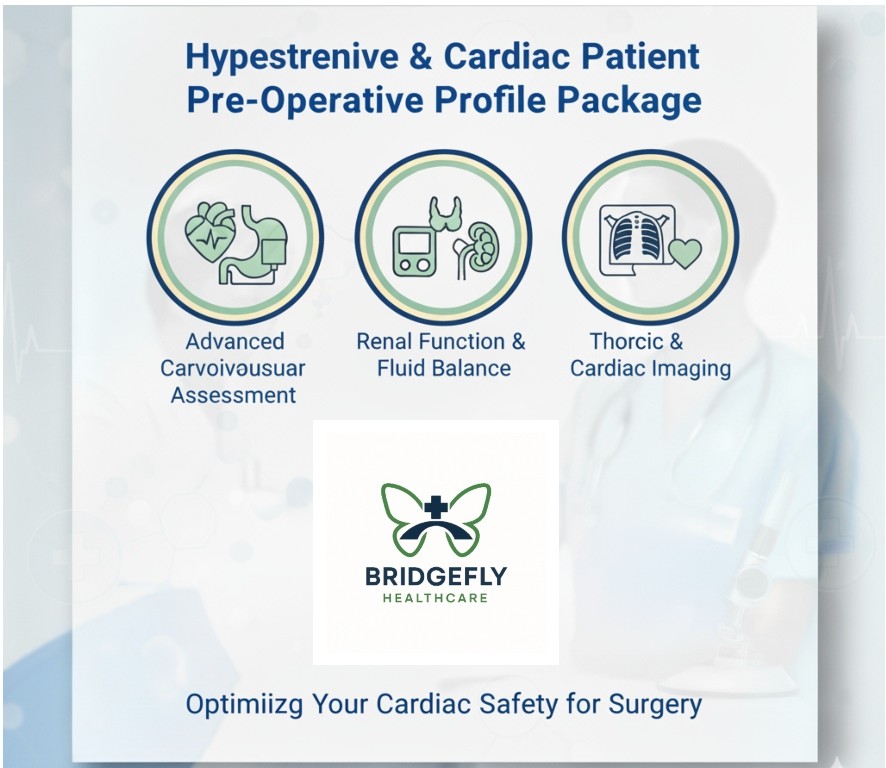
Pre-Op Profile for Hypertension/Heart patients
For advance assessments for your Heart before surgery
₹3000.00
Our service provides an intensive pre-operative cardiac and renal risk assessment. We specifically target patients with a history of Hypertension (HTN) and underlying cardiac disease (including Coronary Artery Disease, prior Myocardial Infarction, or heart failure). The goal is to comprehensively evaluate cardiovascular and renal function to ensure maximum patient safety and mitigate cardiac risk throughout the surgical and anesthetic period.Here is a brief for the complete pre-operative profile package:
I. Core Laboratory Tests (Blood & Urine)
These tests establish baseline function and screen for common surgical risks.
Category | Specific Tests | Rationale |
Hematology | Complete Blood Count (CBC) | To check for anemia (low blood count) or infection (high white count). |
Coagulation | Prothrombin Time (PT) / INR & aPTT | Crucial for assessing bleeding risk, especially if the patient is on antiplatelet or anticoagulant medications (common with cardiac history). |
Metabolic/Renal | Electrolytes (Sodium, Potassium, etc.) | Essential. HTN and cardiac patients are often on diuretics and ACE inhibitors, which can cause potassium and electrolyte imbalances, directly affecting heart rhythm. |
Kidney Function Tests (KFT): BUN & Creatinine | Assess kidney function, which is closely linked to HTN and cardiac health. The kidneys clear anesthesia and medications. | |
Fasting Glucose & HbA1c | Screening for undiagnosed or poorly controlled Diabetes Mellitus, a major risk factor for surgical complications and co-morbidity with HTN/heart disease. | |
Liver/Lipid | Liver Function Tests (LFT) | To assess liver health, as it processes many anesthesia agents and cardiac medications. |
Lipid Profile (Full) | To assess the extent of dyslipidemia, a key component of cardiovascular risk. | |
Special | Urinalysis | To check for infection or signs of chronic kidney disease (proteinuria). |
II. Advanced Cardiovascular and Diagnostic Tests
These are mandatory for a patient with established cardiac disease to evaluate current functional status and stability.
Test | Detail and Rationale |
Electrocardiogram (ECG / EKG) | Mandatory. To look for current signs of ischemia, old heart damage (prior MI), or dangerous arrhythmias (e.g., Atrial Fibrillation) that require stabilization before surgery. |
Chest X-Ray (CXR) | To evaluate lung status and look for signs of Congestive Heart Failure (CHF) (e.g., fluid in the lungs), which is a high-risk factor for post-operative complications. |
Echocardiogram (Echo) | Often required to evaluate Left Ventricular Ejection Fraction (LVEF) (how well the heart pumps). A reduced EF significantly increases perioperative risk. |
Cardiac Stress Test (If indicated) | Required if the patient has had a recent change in symptoms or unknown Functional Capacity (how much exercise they can tolerate). This determines the risk of a heart attack during surgery. |